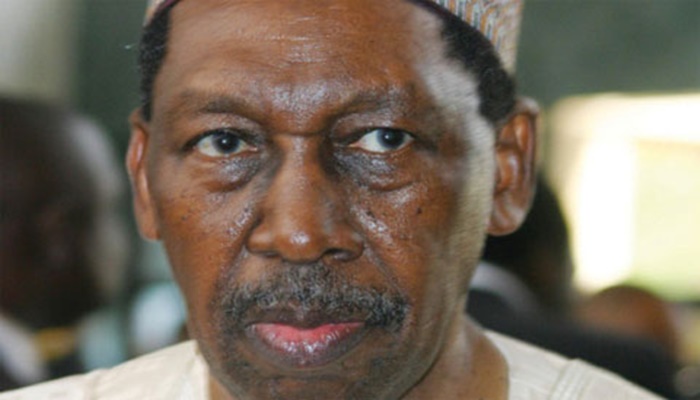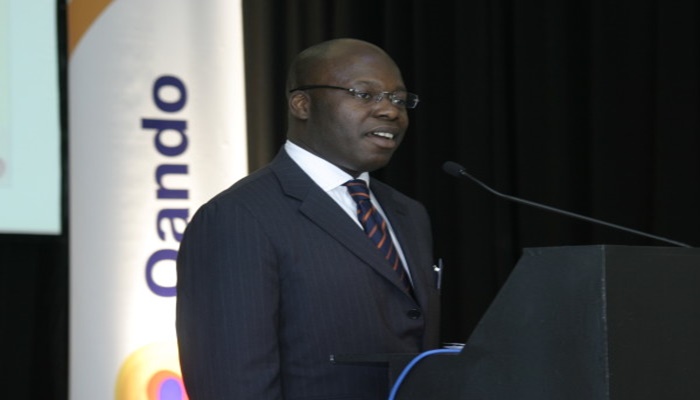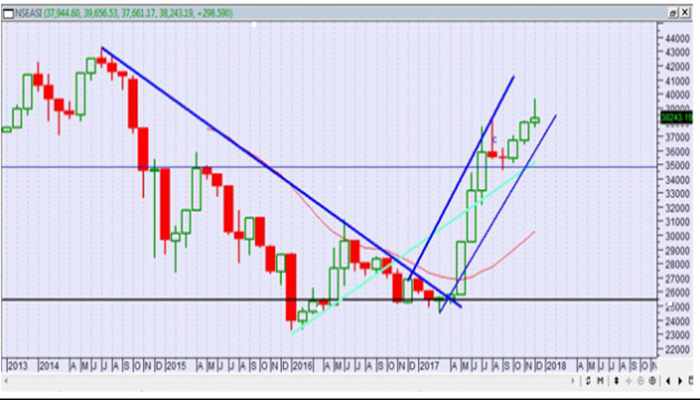Nse Asi Monthly chart
The chart above highlights the monthly changes in the NSE ASI for 2017, with up months represented by green and down periods, red. January and February were down while March to July were up markets, while there were corrections in August and September before the rebound in October, November and December on highly volatile months and days to close the year in green.
The year 2017 was remarkable for bull ascendency as predicted by Investdata during its annual Traders and Investors Summit tagged INVEST 2017, which held on December 3, 2016, after putting into consideration the preceding three straight years of down market induced by multiples of factors. These included the crisis of market confidence, the fact that Nigeria was deep into economic recession, even as politicians were busy passing the bulk instead of fashioning a blue-print to give the economy some form of direction, which was made worse by the delay in appointing economic managers. There was also the factor of low commodity prices in the international market which affected government revenue.
The nation’s stock market at the beginning of the year 2017 was flat but bottomed out in April on the strength of better-than-expected 2016 full-year and 2017 Q1 earnings reports. The effect of this was enhanced by a review of the Central Bank of Nigeria (CBN) Foreign Exchange policy, leading to the introduction of Investors & Exporters window that boosted FX liquidity, resulting in a relatively stable exchange rate regime which impacted positively on the nation’s manufacturing sector and economic activities.
The ensuing rally was supported by low valuation, rising crude oil prices that helped to boost external reserves and government revenue at a time the Muhammadu Buhari administration unveiled its Economic Recovery & Growth Plan (ERGP). This was meant principally to structure the government’s economic diversification efforts, which highlighted the administration’s focus on infrastructure development and agriculture to ensure self-sufficiency in food production and create employment for the country’s teeming youth population, while further driving recovery and growth.
The positive economic data and companies’ numbers were sustained during the year, reflecting on the prevailing economic expansion that strengthened the market and economic fundamentals that affected domestic and international investor confidence which boosted demand for equities.
The impact of the improving liquidity in the fx market continued as a result of the CBN’s sustained intervention, helped by the Executive Order on improving the Ease of doing business signed by the then Acting President Yemi Osinbajo.
Despite the tightened monetary policy of the CBN during the year, inflation figures continued a slow decline, with expansionary manufacturing sector as shown by the Purchasing Managers’ Index (PMI), which remained above 50 points to signal increasing activities in the sector, regardless of the unclear implementation style of the budget and execution of it ERPG agenda by government.
Meanwhile, it was an activity packed year for regulators of the market as the improved confidence triggered a flurry of primary market activities as over 15 companies approached the market with right issues that were successful, just as three companies had their shares listed on the bourse by way of introduction.
Nigeria’s market also witnessed many regulatory actions against market infractions, the most popular among which was the suspension of Oando Plc’s shares on the Nigerian Stock Exchange (NSE) and the appointment of forensic auditors led by Akintola William Deloitte; as well as Partnership investment Company over unauthorized sale of clients’ shares, in a bid to boost market confidence beyond 2017.
The development and growth of the Nigerian capital market during the year were driven mainly by technology to promote transparency that kept both domestic and international investors’ as trading and investing were made simple with the use of online trading platforms. This allows investors trade from the comfort of their homes and offices, with access to real-time market information that enables them take quick investment decisions as more market operators created online portal for their clients to trade directly on their own. This helped to significantly increase the number of traders in the market as more people sought to create more streams of income, especially those seeking to be financially independent through the stock trading and investing.
Helped by interplay of all these factors, Nigeria’s NSE All Share Index, at the end of trading for the year on Friday, December 29, 2017, gained 11,368.57 points to recover more than two years of losses, closing at 38,243.19, after opening at 26,874.62 basis points, representing 42.30% growth. The market however tasted a peak of 39,656.53 and low of 24,547.37 within the year under consideration.
The bullish range and galloping prices were in line of expectations to rank the nation stock market among the best five performing exchange in the world and Africa as it created wealth for players in the year under consideration, despite the negative start on the first trading day and month of the year under review, characterized by the January effect scenario and fear of unimpressive 2016 full-year earnings, which however surprised all. This changed market sentiments, giving insight into the 2017 rally, which supported the better than expected quarterly earnings reports and positive macroeconomic indices, thereby attracting more investors and traders to the market as reflected in the transaction volume and value, as many low, medium and high cap stocks recorded 52-week and new highs.
The market uptrend lasted for 10 months after the first two months of the year that was down and side-trended in August/September with oscillating movement that was attributed to profit taking after five months of bullish run.
A review of the market’s sectoral indices indicated that only the NSE AseM of the 11 indexes closed the year down, shedding 8.60%, while others closed the year up.
The NSE Banking topped the sectorial indexes’ performance chart chalking all of 73.32% in 2017; followed by the NSE Pension index which reflected the power of consistent dividend paying stocks on equity price performance.
As stipulated by the National Pension Commission (Pencom), investment of the nation’s huge pension assets in the stock market must be in companies that had consistently paid dividend for five years and most of the stocks that meet this condition are mostly blue chips of which players in the banking sector account for more than 40%. Next was NSE Premium index that has two banking and one industrial goods stocks. Others followed as revealed by the chart above.
Price appreciation of equities in 2017 was attributed to other factors including growth in the global economy, relatively stable currencies in developed economics and market resulting from crude oil price recovery at the beginning of the year due to supply cut, the flood in the U.S. There was also the unrest in the Middle East which influenced oil production and price in the year under review. CBN intervention in the fx market impacted the economy positively, despite the delayed budget passage by the National Assembly, the government’s poor implementation style, tight monetary policy, high interest rate and high unemployment rate. Available data shows that market liquidity was boosted by the dominant foreign and institutional players. It is a long established norm that markets dependent on foreign funds tends to move in the direction dictated by such fund owners as they move in and out of the market at any given time. Knowing the danger of foreign investor dominance in any stock market, local investors and traders should plan their trades for any eventuality in 2018.
Where Stocks Are Headed
We would like to share our top trading and investment themes in 2018 and where market sectors, stocks, domestic and global economies are headed in the first half of 2018 and beyond as discussed during Investdata’s December 9, 2017 INVEST 2018 SUMMIT where experts challenged investors to stay with value enhancing stocks to generate good returns, while at the same time protecting their capital.
This they agreed, has become necessary, considering the opportunities presented by the 2018 Appropriation Bill submitted to the National Assembly by President Muhammadu Buhari, taking note of uncertainties surrounding the period, being a pre-election year. Also fifteen trade-able stocks with high upside potential were recommended at the summit, meaning if you are ready to make money in 2018 trading or investing, get the home study pack.
The possibility of continued volatility and uptrend in the first three months of 2018 is high.
In the year under review, 65 stocks recorded gains, 12 of which share prices rose by more than 100%, compared to just three equities that recorded triple-digit price appreciation in 2016. Also, more than 30 stocks recorded two-digit capital growth for the same period to create value for investors. The top five gainers were: Dangote Sugar Refinery’s 227.33%; International Brewery had 194.59%; while Fidelity Bank, Fidson Healthcare and Dangote Flour recorded capital growth of 192.86%, 189.06% and 185.88% respectively.
A further breakdown showed that the consumer Goods and banking stocks dominated the best performance table for the year 2017, a situation that may likely continue in the New Year with other stocks that had performed well within the period, on the strength of improving companies, market and economy fundamentals
On the flip side, more than 40 stocks were on the year’s laggards’ table, dominated by petroleum stocks. The top five are: Forte Oil, which lost 48.5% of its opening price for the year; University Press, 46.23%; while MRS Oil, Mobil Oil and Julius Berger were down by 36.49%, 30.25% and 27.42% respectively.
The year ended with stocks on the Nigeria bourse still relatively undervalued on the strength of strong numbers, even as data by the National Bureau of Statistics (NBS) showed that Nigeria’s economy grew by 1.4% in Q3 2017 from 0.72% (revised) in the preceding quarter, amidst expectations that Q4 could even be better. It is expected that the CBN in the New Year would review its monetary policy stance as part of greater collaboration in 2018 to boost economic activity and export. The return of foreign portfolio investors due to the nation’s rising reserves level as the Organisation of Petroleum Exporting Countries (OPEC) extended its supply cut to 2018, as government revenue improves, helping implementation of the year’s budget, which we hope would be enacted in good time.
In the New Year, investors should keep their gaze on stocks in industries such as: Consumer goods, industrial goods, hospitality, energy, agriculture, financial and services that have recorded earnings uptrend in the last financial year and still have strong earnings power that could further drive their prices.
The global economy is likely to continue its expansion through 2018 but the pace of growth is likely to moderate on the downside amidst risks to current pace for different reasons across US, Europe and Middle east, as Britain exit from Eurozone and policy change in US continue.
Investors should be optimistic in the New Year, but be ready to navigate between the opportunities and uncertainties in 2018 as our detailed outlook for 2018 that will be publish next week and the outcome of the INVEST 2018 TRADERS & INVESTORS SUMMIT revealed a mixed signal for the year.
Dream it! Wish it! Do it! Enjoy it! Don’t Miss out
Best regards
Ambrose Omordion
Credit: TRW Stockbrokers Ltd




































